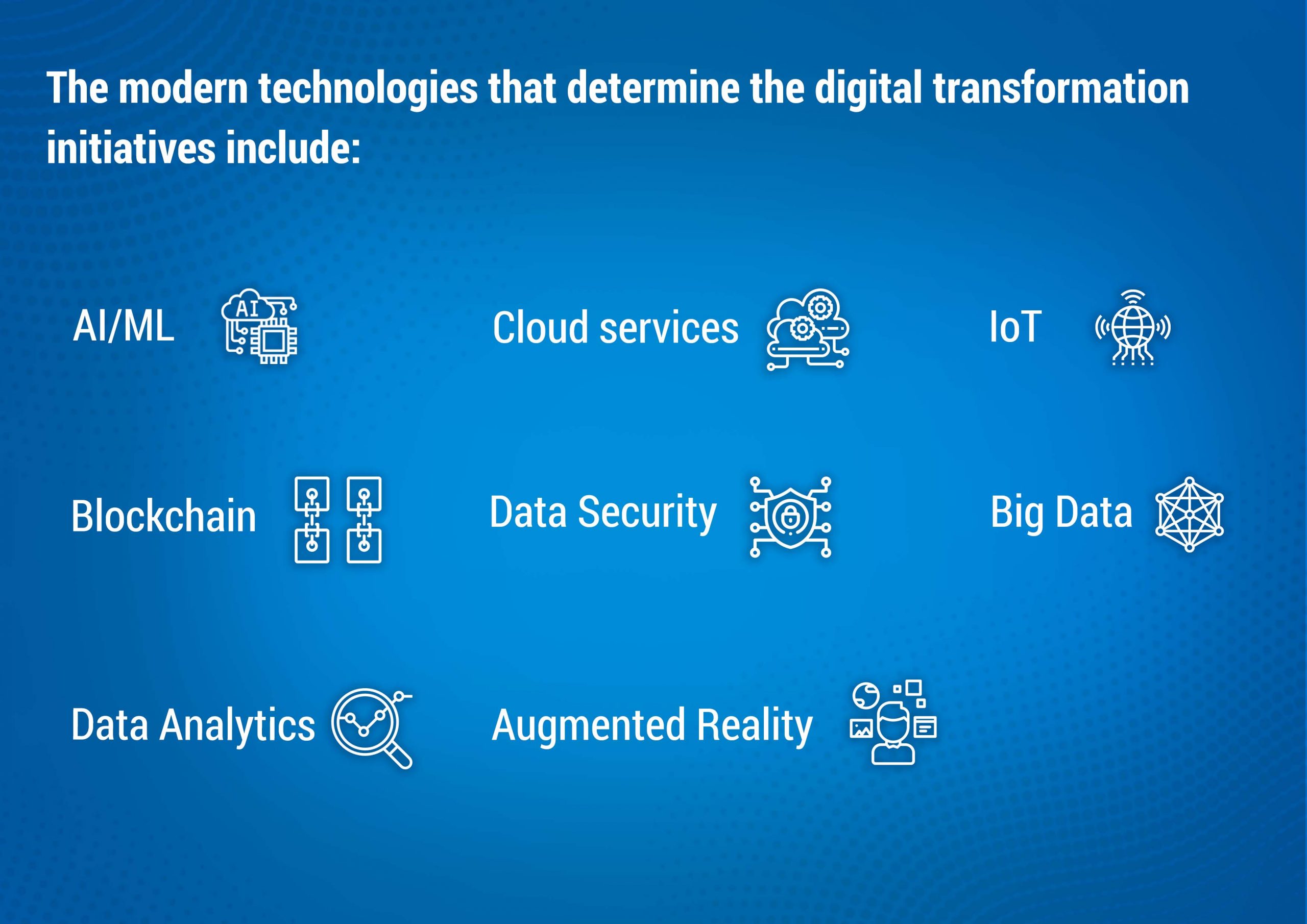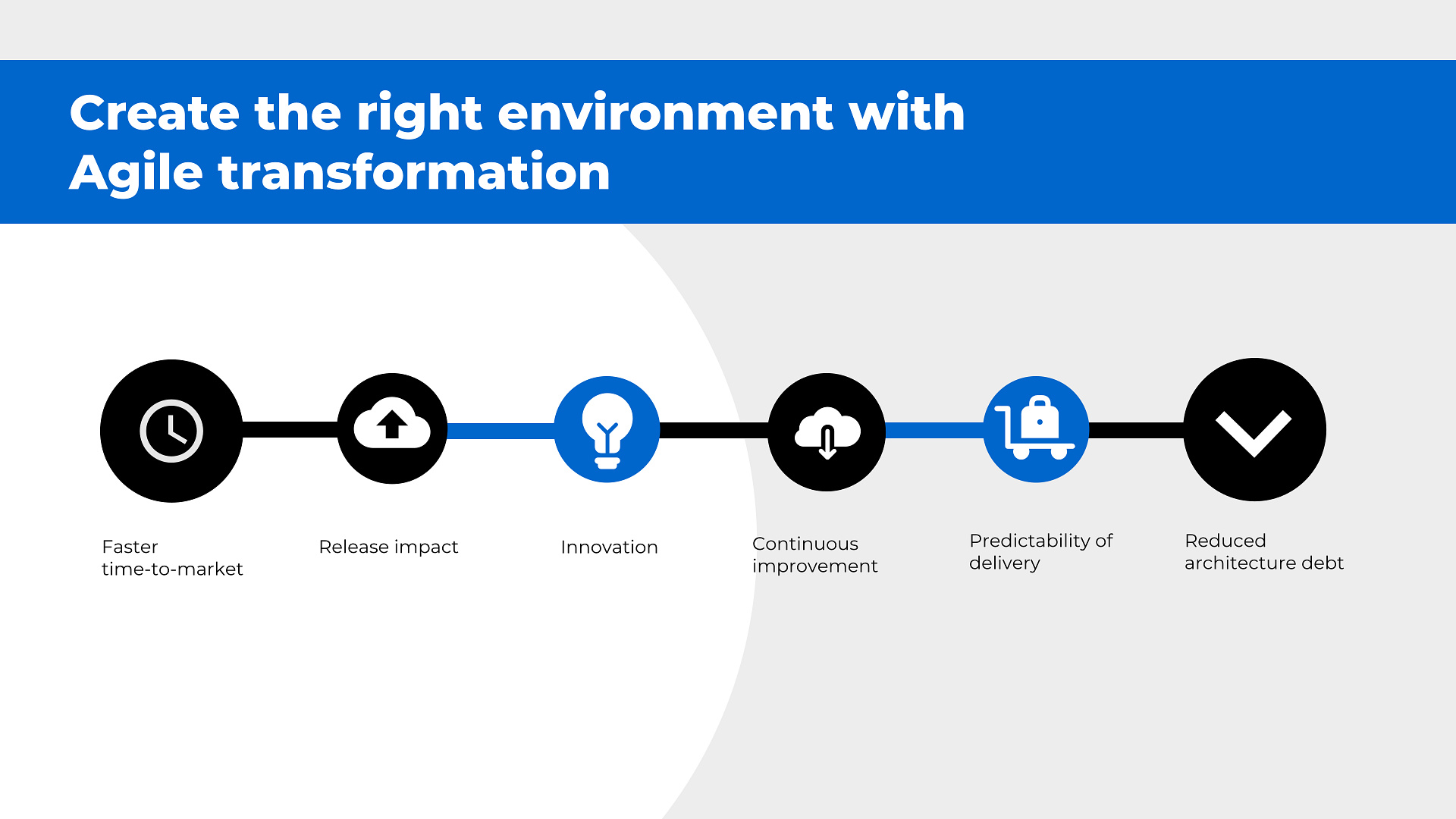
All-In-One Scriptless Test Automation Solution!
All-In-One Scriptless Test Automation Solution!
The agile transformation has become all-important for development and testing to meet any organization’s core requirements to bring high-quality products or services to its customers. Agile revamps the enterprise’s way of function and delivery model.
It instigates the need for business transformation to align the strategy that includes people, process, and technology. The transformation strategy should support the vision and mission of the business. Agile transformation helps them to develop scalability and enables them to achieve expected results.
Agile allows companies to get adaptable and responsive to operate in the changing market scenario effectively. For example, an online application needs constant updates and upgrades of features for the users. In an agile set-up, this is achievable where the team can add new functionalities and features without distracting the application’s continuing operations or the live environment.
Teams can achieve faster time-to-market and ensure quality. To achieve this flexibility, they have to make sure that the enterprise is ready for such reformation. Adopting an agile approach in QA boosts the speed of the process.
To speed up your agile efforts, the adaptation of new digital technologies of the IT world is essential. It includes examining your existing maturity levels, finding critical short- and long-term scopes in Agile, developing Agile adoption, and suggesting the proper tools and solutions. Sun Technologies’ Agile consulting and best practices help businesses transform their design, development, and test automation digital initiatives. We help deliver rapid and efficient products/services.

Well-organized, agile, and efficient business is the key to success in the fast-changing business world. The future-proof enterprise needs to be agile enough to cope up with the ever-changing technology and business trends. It is all about evolving the business processes and adapting to modern technologies and business trends to survive in the business world.
An agile approach will ensure all teams involved can adapt and deliver value quickly and often. Agile allows organizations to get robust and flexible to face the market dynamics and ensure business readiness for such changes.
More and more brands are integrating agile into their overall business strategy, mixing the modern technology stack with agile marketing techniques that put customer needs first. The main objective of this process is to create complete solutions within a time frame that is much shorter than traditional methods. The product will evolve with every step within the application development life cycle (ADLC). It emphasizes that every team should be responsible for their work instead of passing it on to someone else.
Development teams are set up to be self-organizing, with the team being responsible and accountable for delivering a working product. Adding agile to your digital transformation initiatives will allow you to stay ahead of development and have better results.
Software development practices have advanced significantly in the past few years, with many organizations adopting agile software development approaches. CI/CD are terms that demonstrate this shift in an organization’s development lifecycle. Many enterprises have embraced agile business models to create, build, test, and release applications faster than ever. However, many organizations are hesitant due to its time to go from analysis through production.
CI/CD tools have emerged as a solution for these problems with the promise that you can reap greater benefits in productivity. It streamlines your workflow even more than before. Agile with continuous integration and deployment is a process focusing on frequent releases, fast development speed, and less intensive testing. Agile and CI are in vogue as organizations from many industries adopt those processes to overall project success.
Stay ahead of the competition: The pace of change in today’s business world is staggering. Customers demand more options and better pricing, and your competitors are constantly looking for ways to launch faster, iterate more quickly and innovate more aggressively than you.
Reduce risk: The digital age is a turbulent one. Changes in technology, digital habits, and consumer behavior are constantly disrupting existing industries, creating new opportunities for successful businesses.
Improve the quality of your product and services: A well-executed agile business model helps your company achieve a culture of continuous change and improvement. Your organization learns quickly and grows stronger as you adjust to meet shifting customer needs.
Accelerate time to market: Agile software development is the secret behind the incredible speed of product delivery.
Agile development practices have slowly emerging to become trusted methods of development for software teams everywhere. Using agile, you can respond to market changes quickly, bring higher quality software and get an eminent competitive edge.
The agile methodology is often denoted as continuous improvement, robust, improving speed, and efficiency to produce expected business outcomes. In addition to that, agile methodologies build more space for learning and maximize creativity to deliver the best products.
We can’t shrink agile into a limited space. It is a crafty methodology that can be used to fasten up the digital transformation within a highly competitive customer-agnostic environment. Businesses looking for a way to develop a digital landscape that enables their teams to work efficiently must consider agility as the adoption of technology.
To be successful in agile transformation, business leaders should:
The modern approach to agile can be a significant shift for enterprise software teams. With the increased adoption of a more adaptive and collaborative agile way of working, it might seem easy to adopt one or two approaches on your journey to agile transformation. But that’s not the best case for your organization’s success – diversity in planning helps continuous improvement and scaling agility. Therefore, IT and application leaders need to build a new corporate ecosystem that supports flexibility, scalability, and adaptive planning for successful businesses.
Various options are available these days for scaling your company from the humble scrum method to modern methods such as DevOps and DevSecOps.
Organizations align IT resources and technologies to a set of definite digital business capabilities to enable continuous delivery and responsiveness. This enables delivery teams to take complete accountability for the results of their product line.

Agile is all about making a culture change, and it’s not simple. With any change and digital initiative, interaction and transparency are essential. You need to build a culture in which agile is naturally adopted, not pushed top-down as a forceful deployment.
Adopting the agile methodology at the business will not only equip the IT-business relationship. It also improves collaboration and transparency and helps build a strong technology organization that will drive the entire industry to have a more extensive approach. The central communication role of the business can genuinely position IT as an enabler and trustworthy partner in a lasting digital transformation.
Sun Technologies allows you to streamline agile development teams with strategic analysis capabilities. We help you identify and use modern technologies that enable new digital products, services, and business models. Our Agile methodologies ensure the security and efficiency of business processes.
Contact our solution architects today for a secured and better product!
Looking to enhance your software delivery process?
We help derisk your business models through our value-driven agile approach.